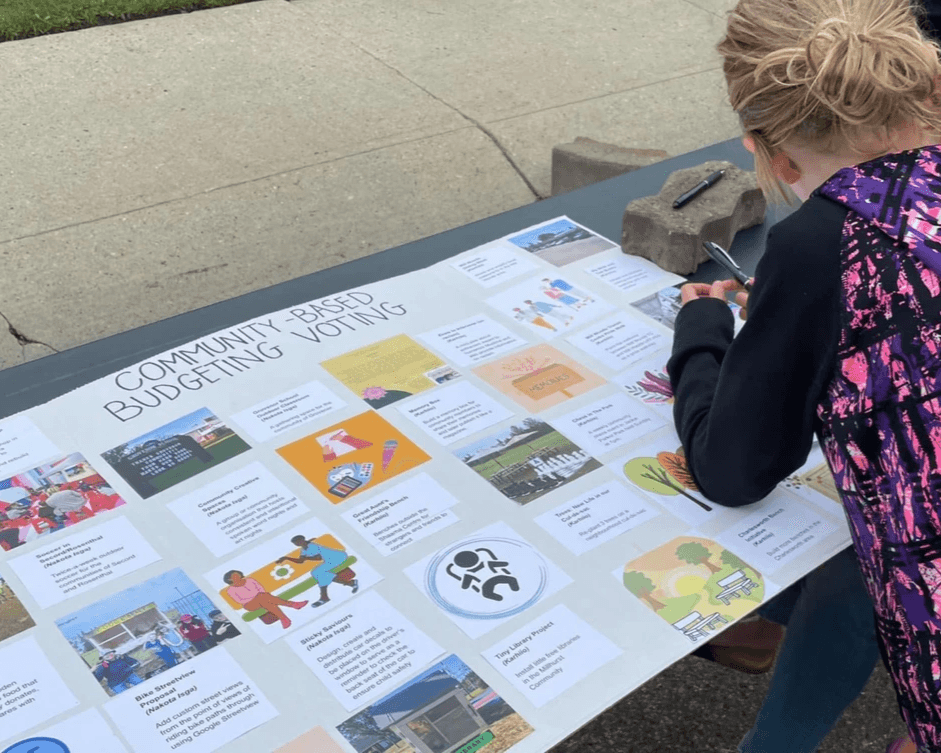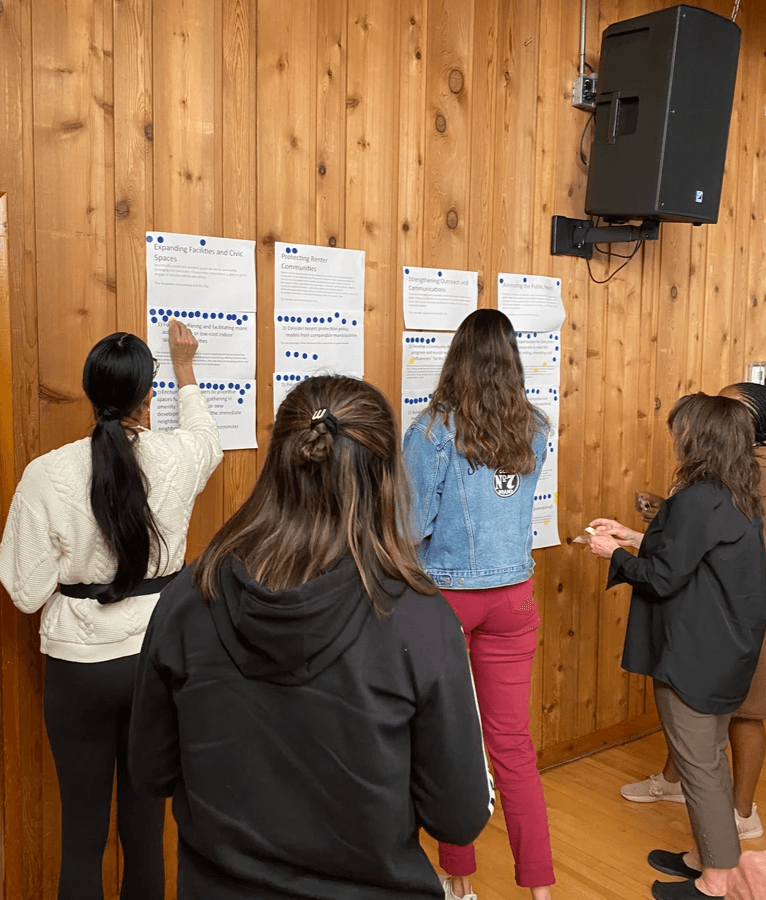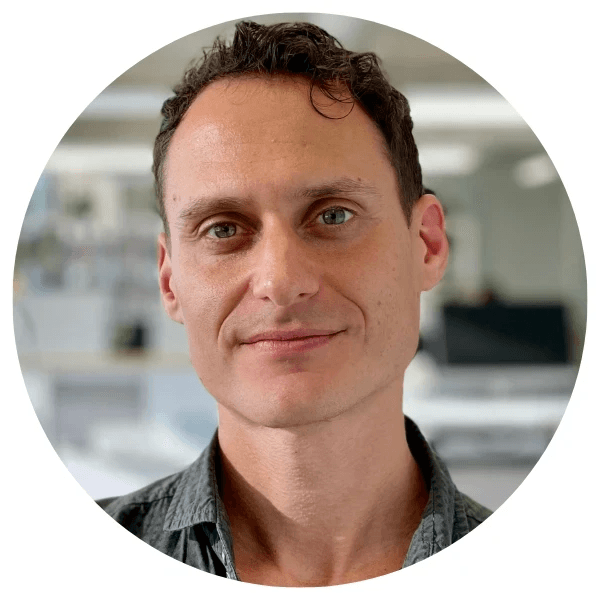

New Report: Advancing climate action Through Participatory Democracy
Download the Report below
Thank you to everyone who joined us for a webinar co-hosted with Climate Caucus to mark the launch of a report commissioned by Climate Reality Canada: “Advancing climate action through participatory democracy: Innovative approaches for public engagement at the local level ” by Megan Mattes, PhD candidate at Simon Fraser University.
The report features a selection of public engagement case studies, focusing on innovative approaches for broadening participation; engaging in meaningful dialogue to work through disagreement; and strengthening the ability for residents to give meaningful input that has a demonstrable impact on policy decisions.
This project was made possible with support from the 312 Main Research Shop at Simon Fraser University’s Community-Engaged Research Initiative (CERi) and Mitacs.

Key topics we coverED DURING the webinar
The webinar featured an in-depth discussion with the author of the report and practicioners who were involved with the implementation of two case studies featured in the report about:
- Participatory democracy as a tool for advancing climate action
- The City of Burnaby’s Community Assembly
- The City of Montreal’s Participatory Budget
Climate Reality believes that increasing meaningful public participation in policy-making is imperative to overcome political polarization and continue advancing climate action. By commissioning this report, we want to amplify stories of how municipalities, community partners and residents are working together to develop creative, effective and equitable climate solutions that are supported by a broad public mandate. We hope it serves as inspiration for municipal officials, climate and public engagement professionals, activists, and anyone interested in the intersection of climate action and participatory democracy
FEATURED CASE STUDIES in the report

Citizens’ Assembly
Burnaby’s Community Assembly
Initiated in 2021, the Burnaby Community Assembly was the first citizens’ assembly commissioned in Canada to source community input for an Official Community Plan. As such, this process was an opportunity to address climate policy in a much broader context. The assembly focused on one central, guiding question: how should Burnaby grow and change by 2050 to create a city where everyone can thrive? Across the seven full-day sessions between February and June of 2024, participants met to learn about and discuss issues facing the city including density, livability, housing, climate change, and transportation.

Citizens’ Assembly
Bude Area’s Community Jury on Climate Change
Spurred on by the shocking projected change in their coastline, the members of the Bude Climate Partnership decided they would take the initiative to convene a citizens’ jury on climate change. At the conclusion of the process, the Bude Area Community Jury produced 11 principles to guide future decision making on sea level rise and 29 recommendations across three categories: sea level rise, raising awareness, and other climate-related issues facing the community.

Participatory budgeting
Edmonton’s Community-Based Budgeting
In total, 23 project proposals were submitted: 13 in Ward Karhiio, and 10 in Ward Nakota Isga. The City was thus able to fund all proposals. While the program didn’t exclusively focus on climate or environment, several projects emerged that were rooted in environmental stewardship and justice. Edmonton’s process is notable for the degree to which dialogue and collaboration was established among community members as well as community organizations. Participants remarked on the connections they established and deepened with local community leagues, non-profits, advocacy groups, businesses, and schools.
Photo: Keren Tang

Participatory Budgeting
Montréal’s Participatory Budget
Because participatory budgeting is open to all, it represents a novel approach for the City of Montreal to engage its residents - including those who may not usually participate - on the design of local projects and programs. The first round of Montreal’s participatory budget process encouraged submissions that would contribute to the city’s social-ecological transition. Through a participatory selection process involving city staff and civil society, the 620 ideas submitted by local residents were narrowed down to 35 project proposals. Voting was open online to residents over 12 years of age as well as to local merchants, and voters could select up to five projects they found most deserving of funding. In the summer of 2021, over 20,000 votes were cast, and the top seven winning projects among which the $10 million investment was divided.

Citizen advisory committee
Saskatoon’s Environmental Advisory Committee
In 2017, when Saskatoon City Council’s Governance and Priorities Committee undertook a thorough review of the city’s governance practices, the advisory board structure was identified as a key opportunity for reform. Following a thorough review of the board structure, the Governance Subcommittee recommended a series of reforms to improve the standard of governance for the citizens of Saskatoon. Among these changes were reforms that made way for dedicated inclusion of previously underrepresented groups on the city’s advisory boards.

Citizen advisory committee
New Westminster’s Community Advisory Assembly
In Spring 2023, council proposed a new model for advisory committees: collapsing them together to form one Community Advisory Assembly, convened with the objective of bringing together a representative sample of New Westminster residents to talk about City policies and projects and provide advice and recommendations back to staff and Council. The program differs from traditional committees in other ways too: it has a greater number of members than a traditional committee; it meets monthly, which is more frequent than previous committees met; meetings centre on dialogue and deliberation; and supports are available to participants to help address barriers to participation, including reimbursement for expenses incurred to attend, stipends for child care and elder care, and compensation for low-income members or those who must miss paid work to attend meetings.
Our SPEAKERS

Megan Mattes
PhD Candidate - Simon Fraser University
Megan Mattes is a PhD Candidate in the Department of Political Science at Simon Fraser University. Her research focuses on political participation with an emphasis on deliberative processes and local government.
With a background in public policy, Megan’s research examines practical approaches to embed more deliberative and inclusive opportunities for citizen participation in decision making.

Robin Prest
Centre for Dialogue
Robin Prest leads the Democratic Participation and Innovation Team at Simon Fraser University’s Morris J. Wosk Centre for Dialogue, where he served as principal author for the report, Can Public Participation Accelerate the Transition to Net-Zero? Robin’s commentary and programming have been featured in international forums such as the United Nations Climate Conference (COP26) and the Westminster Foundation for Democracy's Environmental Democracy conference.
As Project Director for the 2017 Citizen Dialogues on Canada’s Energy Future, Robin oversaw and co-designed the first ever cross-Canada deliberative dialogue where a representative body of citizens made recommendations on national energy policy.
Through current projects such as the Burnaby Community Assembly and Mitigating Wildfire Initiative, he is working to demonstrate how engagement can foster collaborative decision-making and mobilize whole-of-society action on critical issues.

Shawn Katz
Centre d'écologie urbaine
Shawn Katz holds a bachelor's degree in political science and a master's in culture and communication. Passionate about participatory and deliberative democracy, Shawn has been interested for many years in the conditions and structures that allow for successful citizen involvement in the policy process, particularly at the municipal level.
As a member of the participatory democracy team at the Centre d’écologie urbaine since 2022, Shawn has helped accompany local governments and organizations in implementing participatory budgeting (PB) processes, and has developed tools and materials to guide municipalities and not-for-profits in designing and running PB. Shawn’s diverse experiences as an author, educator, activist and participatory democracy practitioner provide him with a broad understanding of the factors supporting meaningful citizen participation, and he continues to draw inspiration from innovations in public participation, both locally and internationally.
The Climate Reality Project Canada’s office is located on land which has long served as a site of meeting and exchange amongst Indigenous peoples, including the Haudenosaunee and Anishinabeg Nations. Our organization honours, recognizes and respects these Nations as the traditional stewards of the lands and waters on which we are today.












